WASHINGTON (American Forces Press Service, Oct. 15, 2007) - Violence in Iraq's Diyala River Valley has been slashed in half thanks to citizen volunteers, a coalition commander said Oct. 12.
"Currently in Diyala, we have 4,000 local citizens who have decided to reject al Qaeda and other extremist organizations as well as militia, and they're now helping in the protection of their own neighborhoods," Col. David Sutherland told online journalists and "bloggers" during a conference call from Forward Operating Base Warhorse near Baqouba, Iraq.
Col. Sutherland commands the 3rd "Greywolf" Brigade Combat Team, 1st Cavalry Division, deployed from Fort Hood, Texas, and assigned to Multinational Division North. Since November of 2006, he and his Soldiers have been working with Iraqi security forces to drive al Qaeda out of a vast area that stretches from Baghdad eastward to the Iranian border. Increasingly, that mission has depended on Iraqi citizen volunteers.
"The local citizens now understand that the future of Iraq can be better if they get involved in ridding this area of the al Qaeda influence and participate in the development of their own democracy, which they're also assisting in defining," Col. Sutherland said.
"Concerned local citizens" are essentially neighborhood watch groups that patrol Iraqi communities and report suspicious activity to coalition and Iraqi security forces, the colonel explained.
"They are also providing actionable information on the location of weapons caches," Col. Sutherland explained. "They even point out al Qaeda fighters, locations of house-borne IEDs, vehicle-borne IEDs, deep-buried IEDs, and this is all making a difference."
Members of these groups take an oath, sign a contract and are vetted to make sure they are not insurgents hoping to infiltrate the organization, the colonel said. If a member does not live up to the agreement, they are kicked out or even arrested, as were a concerned local citizen leader and 16 of his followers this week who were accused of raping a young Iraq girl, extorting money from fellow citizens and maintaining weapons caches.
"The people of the neighborhood and other CLCs from other neighborhoods are the ones that gave us the information (to arrest them)," Col. Sutherland said. "We will enforce not only reconciliation agreements, but we will enforce the CLC agreements, as well."
Using concerned local citizens groups to build Iraqi confidence and restore security that was shattered by terror groups is crucial to reconciliation in Diyala, the colonel explained.
"Unlike al Anbar, which is predominantly Sunni, in Diyala we have 25 major tribes from all sects: Sunni, Shiia and Kurdish. And we also have over 100 sub-tribes within this province. All are competing for resources and for power," Col. Sutherland said. "Reconciliation in Diyala attempts to eliminate all the rifts in the society that al Qaeda about 18 months ago attempted to exploit."
So far, 250 tribal leaders have signed reconciliation agreements, the colonel said. Only three tribes have yet to sign, and that is due only to their remote locations, Col. Sutherland said.
"Basically the tribal leaders are realizing that if they don't participate, they'll be left behind as security and services improve," he said. "Reconciliation goes on between not only tribes but villages, within families, across religious sects, and even between the police and the army."
The bottom line, the colonel said, is that Iraqi citizens are realizing that the only way to stabilize their communities and reconcile their country is to stand together against extremists.
"For thousands of years they've lived together, and they're sick and tired of the violence," he said.
<b>Citizens Movement Crosses Sectarian Lines to Secure Iraq</b>
Iraqi citizens are reaching across sectarian lines and volunteering in unprecedented numbers to drive out terrorists and reconcile their country, a coalition military commander said Oct. 10.
"These are Iraqi volunteers who are stepping forward at the local level in different villages and different cities," Army Maj. Gen. Kevin Bergner said. "They are most importantly taking a stand to fight the extremists and take a direct role in improving security in their communities."
Maj. Gen. Bergner, the Multinational Force Iraq deputy chief of staff for strategic effects, spoke with online journalists and "bloggers" shortly after conducting an operational briefing from Baghdad.
"It's what we had seen in Anbar province as an important catalyst that the sheiks of Anbar helped orchestrate," Maj. Gen. Bergner said. "Now it's a continuing enabler we see evolving much more broadly across Iraq."
During the course of the "Anbar awakening," primarily Sunni citizens formed neighborhood watch groups at the behest of tribal and religious leaders, then helped coalition forces drive al Qaeda terrorists out of their communities west of Baghdad. Maj. Gen. Bergner said that same type of anti-terror movement is sweeping communities throughout Iraq.
"You'll see Shiia concerned local citizens and you'll see Sunni concerned local citizens in the hundreds," he said. "As you get to the level where there are more and more of these groups, it's a challenge for the government of Iraq."
Part of that challenge, the general explained, is turning unpaid security assignments into professional positions. Many concerned local citizens expect that their vigilant volunteer service will eventually translate to a steady paycheck.
"This basically brings people who were formerly fighting against the government of Iraq or against security forces or the coalition, and it gives them a path to either matriculate into the legitimate security forces of Iraq or pursue employment opportunities or other ways to become part of the solution in their communities," Maj. Gen. Bergner said. "That's how this will logically play out: the government of Iraq takes ownership."
Some volunteers may become police officers, as 1,700 concerned citizen volunteers did in Baghdad's Abu Ghraib neighborhood, the general explained. Others may become paid members of the Iraqi army or work on infrastructure projects in the country, Maj. Gen. Bergner said.
"Most importantly here, these groups have one thing in common," the general said. "They have found the courage to take a stand and begin fighting against the extremists."
Maj. Gen. Bergner said Iraq's central government is taking overt steps to support concerned local citizens groups and their work to defeat insurgents.
"The government of Iraq, the prime minister of Iraq, has taken a pretty courageous stand here in supporting and encouraging Iraqi citizens to come forward and to oppose al Qaeda, oppose other extremist groups and to help find ways for them to work with their own security forces," the general said.
Iraqi Prime Minister Nouri al-Maliki has been meeting with leaders of local volunteer citizen networks, both Shiia and Sunni, the general explained.
"There actually is a significant amount of outreach under way, and it has crossed sectarian lines," Maj. Gen. Bergner said.
Ultimately, each Iraqi citizen, whether working for a police force, the military or elsewhere, must find a meaningful way to contribute to his or her community, Maj. Gen. Bergner explained, and that will take time, money and patience.
"It's a work in progress," he said. "But I would say most importantly, it's in progress."
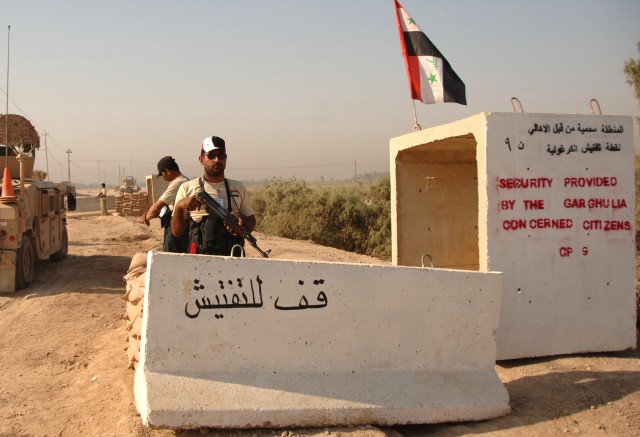
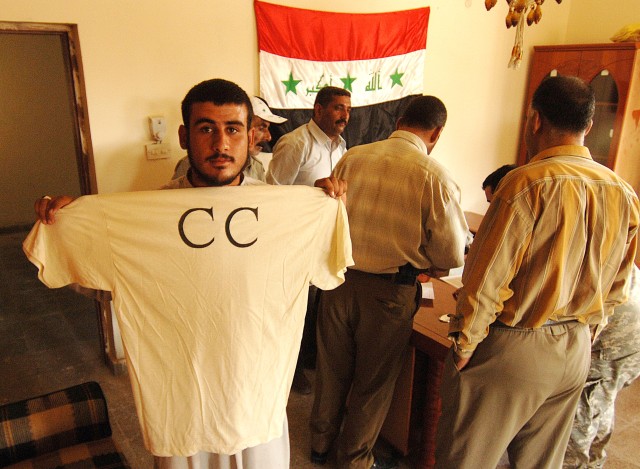
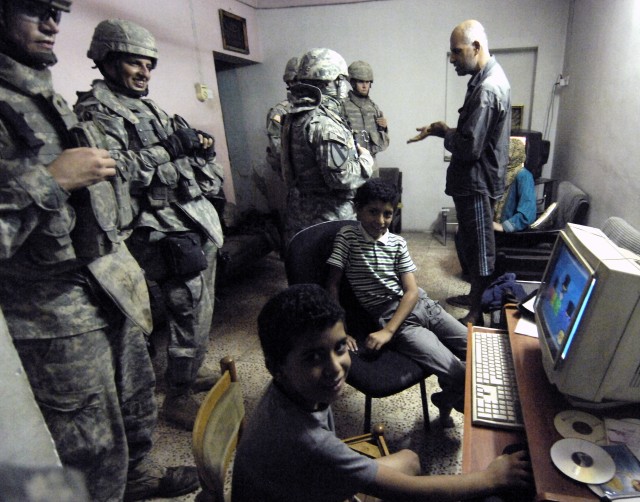
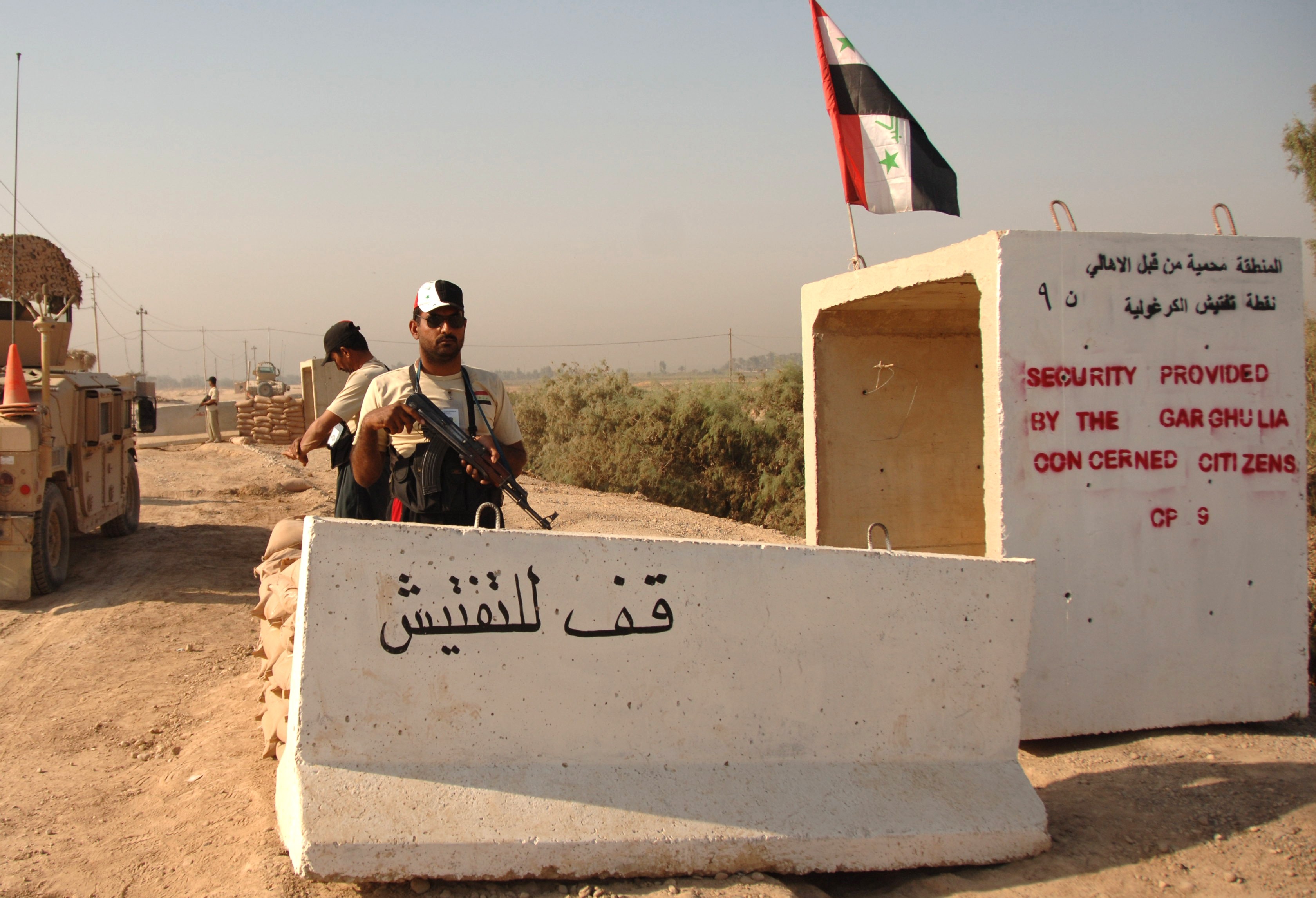
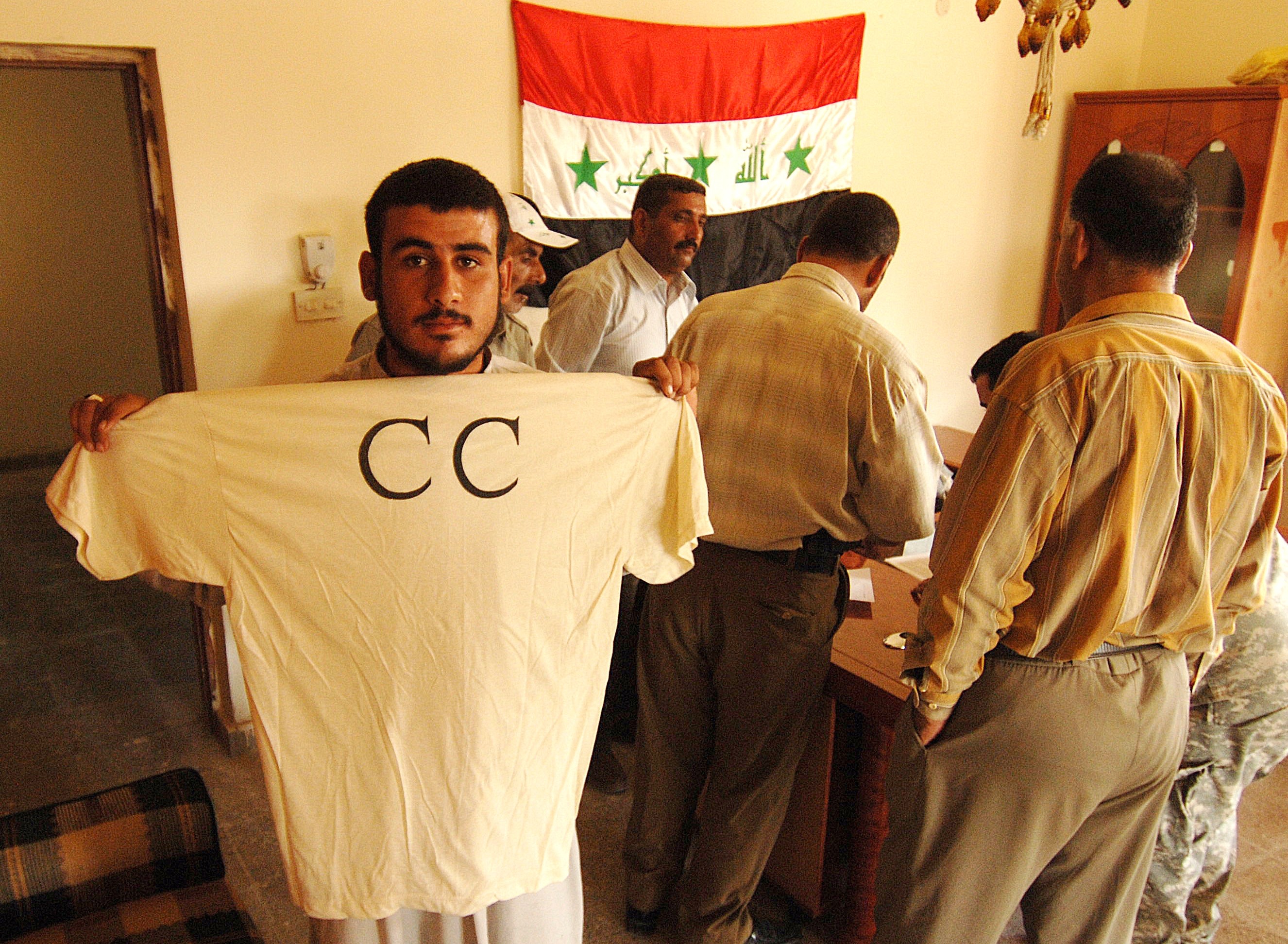
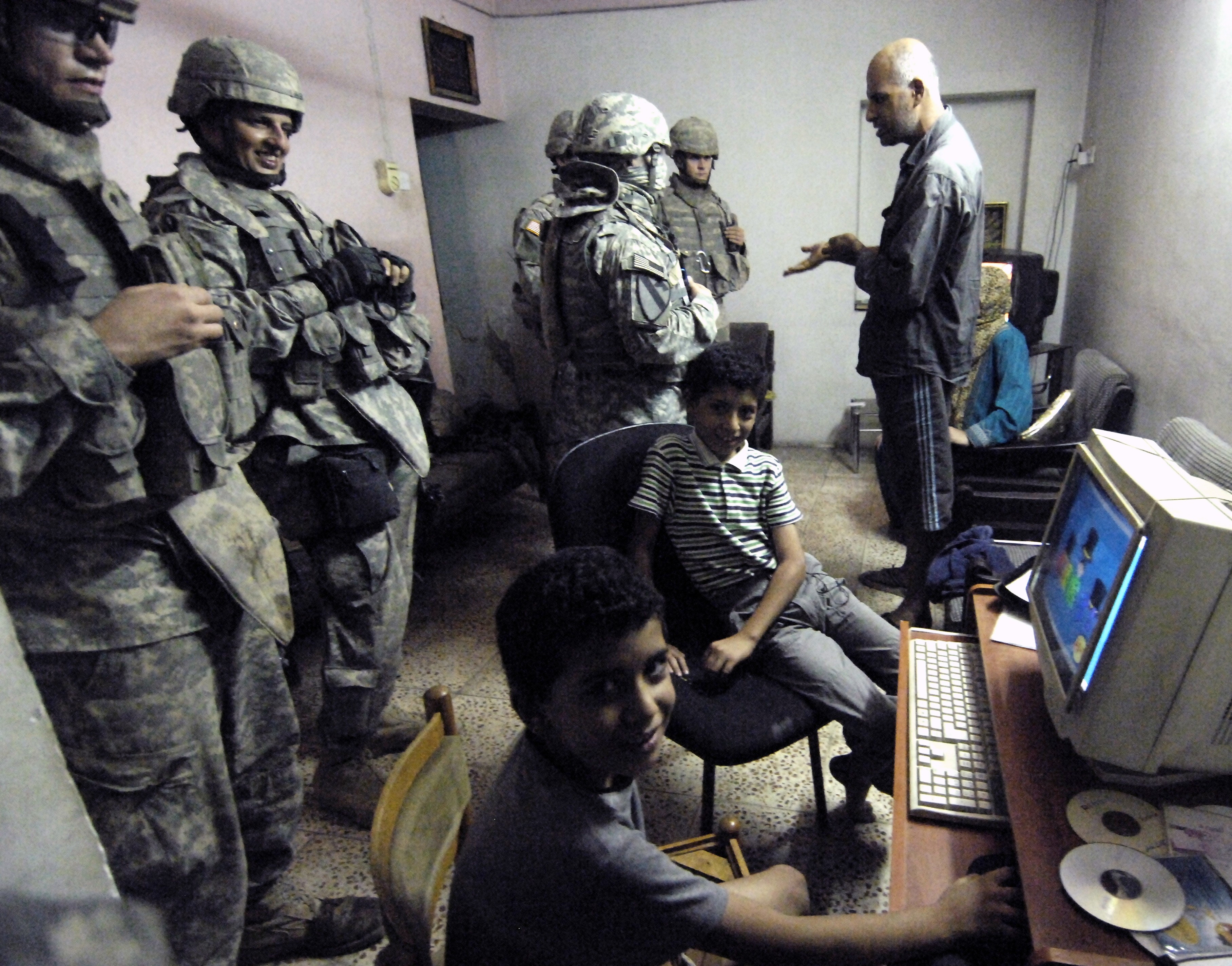
Social Sharing